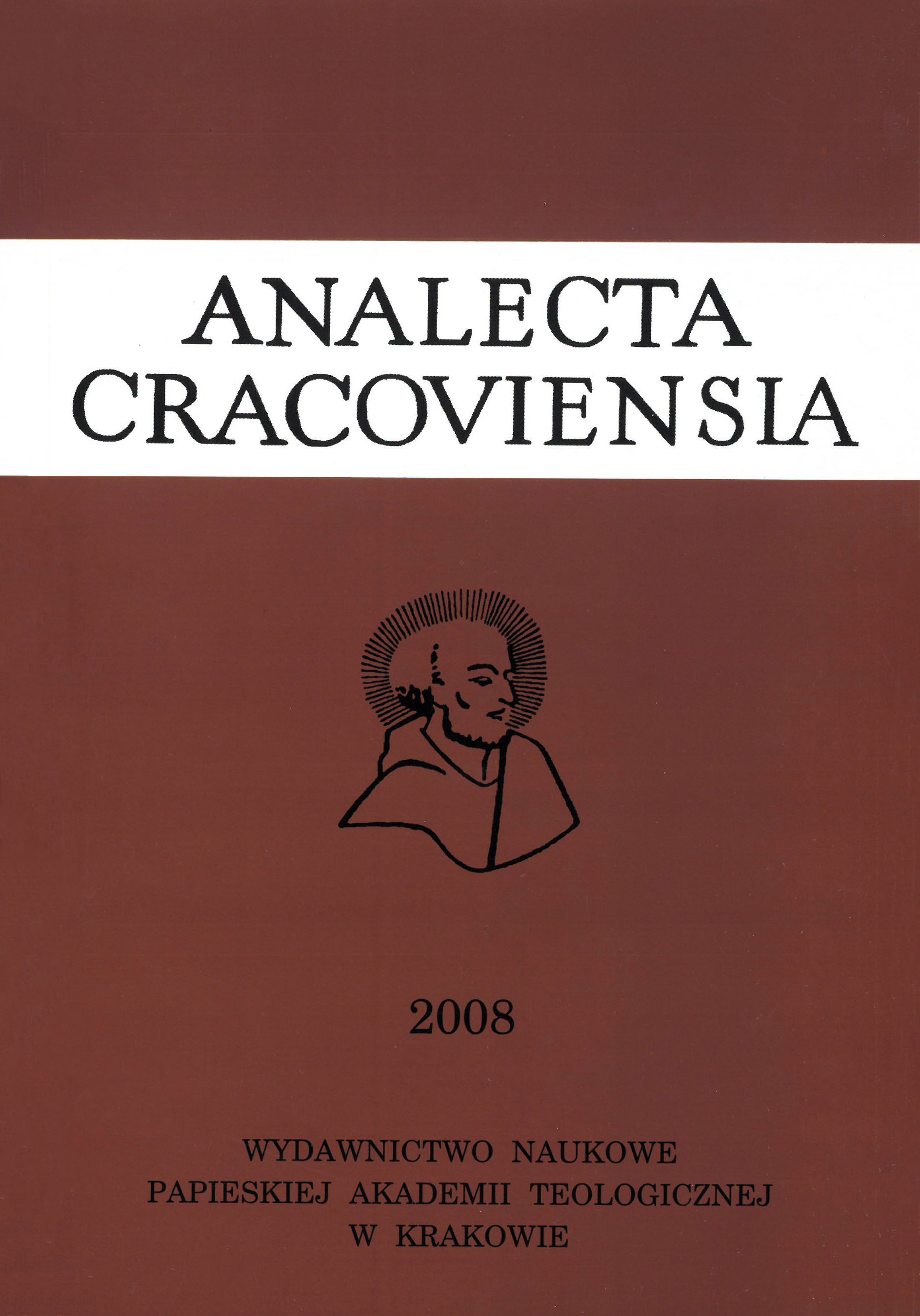Istota i cechy niebiańskiego szczęścia w nauczaniu Grzegorza Wielkiego
DOI:
https://doi.org/10.15633/acr.4010Abstract
The main purpose of the article is to look at the doctrine of Gregory the Great and explore his teaching on the essence and characteristics of the celestial felicity. According to the teaching of Gregory the Great, the essence of celestial felicity consists of two elements: the vision of God and the joyful fruition which flows from the vision. The vision of God identifies with the possession of God and unity with Him through the beatific love. The celestial felicity first of all is characterized by feature of perfection because of the clarity of the celestial vision. The celestial felicity is spiritual, i. e., the felicity concerns only spirituality of the human in contrast to the teaching of the followers of the chiliasm. The celestial felicity is eternal, because the human soul in heaven participates in the eternity of God. The celestial felicity is true, because in the state of the felicity the human perfectly communes with God who is Truth (John 14:6). The celestial beatitude is beautiful, because in heaven the human participates in God clothed with majesty (Ps 92:1).
Downloads
Published
Issue
Section
License
Copyright (c) 2022 Oleksandr Kashchuk

This work is licensed under a Creative Commons Attribution-NonCommercial-NoDerivatives 3.0 Unported License.
Authors who publish with this journal agree to the following terms:
- Authors retain the copyright and full publishing rights without restrictions, and grant the journal right of first publication with the work simultaneously licensed under a Creative Commons Attribution 4.0 International License that allows others to share the work with an acknowledgement of the work's authorship and initial publication in this journal.
- Authors are able to enter into separate, additional contractual arrangements for the non-exclusive distribution of the journal's published version of the work (e.g., post it to an institutional repository or publish it in a book), with an acknowledgement of its initial publication in this journal.
- Authors are permitted and encouraged to post their work online (e.g., in institutional repositories or on their website) prior to and during the submission process, as it can lead to productive exchanges, as well as earlier and greater citation of published work (See The Effect of Open Access).

